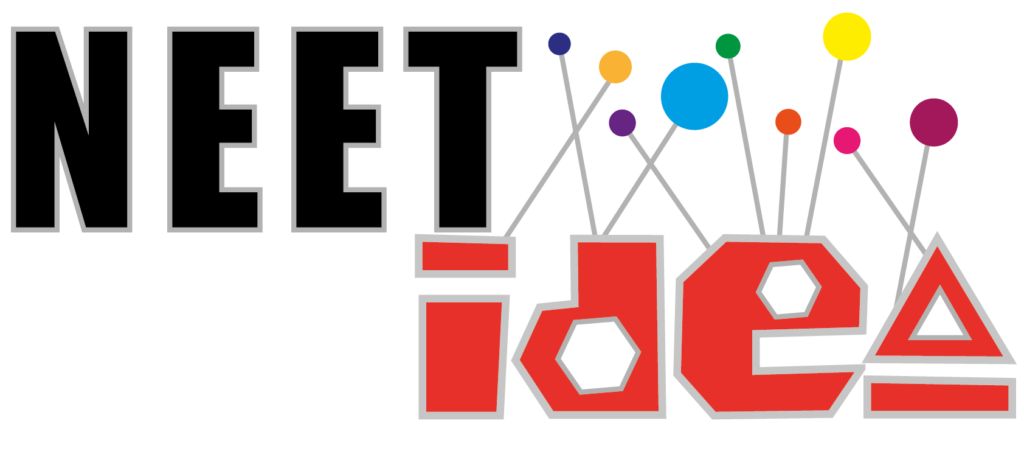To view this full document in each partner language, please navigate to the “Materials” section of this course.
Introduction to the Inquiry-Based and Embedding-learning Key
The In-Service Training Programme explores the different roles of educators and support workers within the environment of embedded learning. It focuses on the ubiquity of online learning environments that greatly appeal to the young adult NEET target group. The face-to-face sessions focus on building the competence and confidence of educators so that they can develop digital media projects and short films with young adult NEETs in their community. It also highlights key engagement strategies that can be used to engage these hard-to-reach learners. This programme ensures that adult educators have the ability to utilise online learning resources and be comfortable in carrying out online tasks. Adult educators are suitably trained in blended learning models of intervention, to understand the benefits of online learning and be fully aware of the risks that are associated with online environments. The NEET IDEA In-Service Training Programme contributes greatly to the development of the inclusivity of marginalised groups in many educational settings.
The Embedded-learning Key proposes a series of tools to support educators to guide NEET’s into the pre-production, production, and post-production stages, thereby creating the short film “My Dream Job “.
The In-Service Training Programme for educators’ trains educators so that they can use embedded and enquiry-based learning resources in their work with young people and provide knowledge about the pre-production, production, and post-production stages of film production. This means that they can proficiently incorporate digital media into NEET learning environments and provide explanations to learners through short videos. 62 The basis of Inquiry-based and Embedded-learning is to provide tools for young educators to train young people to make short films through practical activities and exercises. Thereby creating their own movies, based on the theme My Dream Job. This will be the main achievement and outcome of the NEET IDEA project for young people. The learning process of acquiring resources based on key skills of inquiry-based and embedded learning. With these resources, NEETs will have the necessary tools to communicate with young people and equip them with the necessary skills to make short films.
The goals of these resources are:
· Providing practical exercises based on embedded learning and inquiry-based methods, which young workers can use in their teaching practice
· Providing learners with practical knowledge of making short films
· Teaching NEET’s how to go through each stage of filmmaking
· Increasing key lateral soft skills for young people with fewer opportunities · Promoting reflection on social and civic issues
The NEET IDEA proposes filmmaking from your smartphone, an accessible and affordable method. In recent years, smartphones have evolved from ringing pocket bricks to incredible mobile content creation machines. The NEET IDEA project will bring you on a learning journey that explores three phases of how to make a video on your smartphone. One of the most important things is to grab the viewer’s attention near the beginning of the video. As humans rapidly devolve into goldfish, our attention spans aren’t quite what they used to be. Creating a sense of engagement upfront to make people want to continue watching. Want to capture your audience for the duration of the video? Keep it short and get to the point.
To teach young people about the main stages of video creation (pre-production, production and post-production, these resources use a range of tailor-made learning approaches to engage them and build their self-confidence and competences. 72 Two methods will be applied, namely the embedded-learning and the inquiry-based method.
The inquiry-based tools use an active learning approach that allows students to identify and study problems and concerns in order to build information or solutions. Learners can complete their learning process to make their own short films with the aid of these tools, as well as improve key transversal soft skills such as social and civic competencies, communication skills, etc. The embedded-learning opportunities take a hands-on approach to learning. Learners will be guided through a variety of practical activities to improve their skills in creating short films using prototypes, models, and examples. Young people will be supported by adult educators to complete the practical activities on the key stages of filmmaking.
Compendium of Inquiry-based and Embedded-learning Resources EN
Compendium of Inquiry-based and Embedded-learning Resources PL
Compendium of Inquiry-based and Embedded-learning Resources LT
Compendium of Inquiry-based and Embedded-learning Resources HR
Compendium of Inquiry-based and Embedded-learning Resources ES
Compendium of Inquiry-based and Embedded-learning Resources CZ
Compendium of Inquiry-based and Embedded-learning Resources BG


